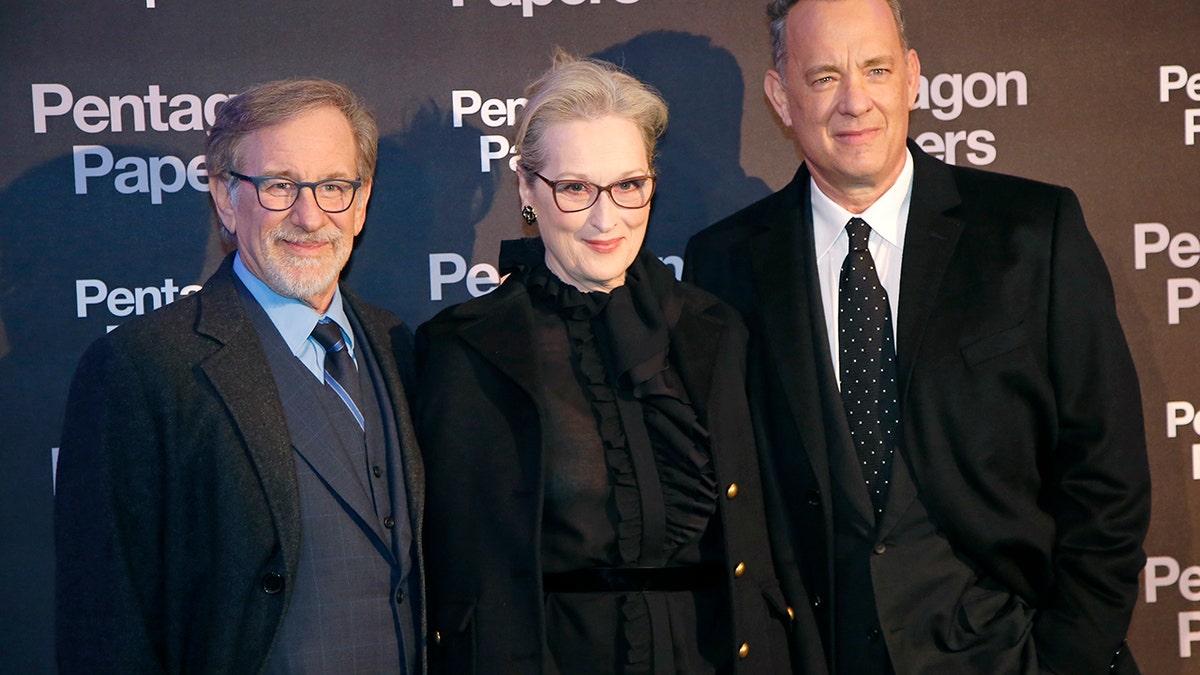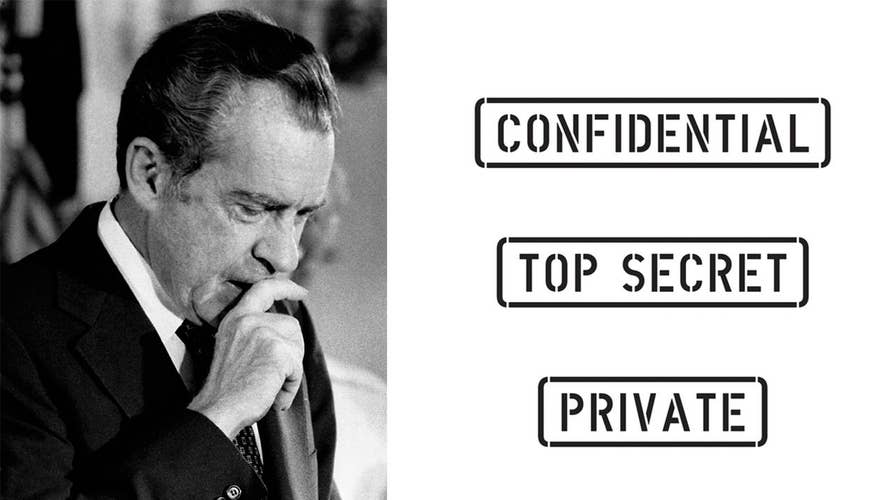Media’s role in some of the craziest leaks in US history
From the Pentagon Papers and Watergate to the Trump Dossier and the Plame Affair, what role did the media play in leaking classified information?
The media industry’s decades-old crusade for transparency ended this week as liberal pundits from a variety of news organizations called for the controversial memo on alleged FBI abuses to stay private.
Talking heads on both CNN and MSNBC, as well as editorial boards from the prestigious New York Times and Washington Post have all come out against the House Permanent Select Committee on Intelligence memo that potentially reveals the FBI abused spying authorities and paints government officials as anti-Trump.
Ironically, the mainstream media wanted to keep the memo private even as Steven Spielberg’s “The Post,” a story about the Washington Post’s fight to release the Pentagon Papers, is playing in theaters across the nation. Hollywood royalty Tom Hanks and Meryl Streep portray newspaper legends Ben Bradlee and Kay Graham as they challenge the government to release the controversial documents.
Most Hollywood liberals presumably consume the same mainstream media that is attempting to do the exact opposite of the characters the famous actors portray in “The Post.”

Spielberg, (l.), with Streep and Hanks, are touting a movie about journalism even as Big Journalism tries to squelch a damning memo (Copyright 2018 The Associated Press. All rights reserved.)
The real-life, current version of the Washington Post isn’t exactly a champion of transparency at the moment. The paper’s editorial board wrote on Thursday that it’s “not in the business of opposing the release of information of potential public value,” but then spends a few hundred words contradicting that statement.
“Discrediting law enforcement is the memo’s transparent purpose and why it has been embraced by President Trump,” Post editors wrote before claiming that House Speaker Paul Ryan and GOP colleagues want to help Trump “impede an investigation” into whether or not Russia attempted to influence the 2016 election.
Mediaite columnist Joseph Wulfsohn thinks the “paradox surrounding the memo controversy is quite remarkable” as major publications take a stand against transparency.
Apparently the Washington Post has already forgotten their Trump-era motto ‘Democracy Dies in Darkness.’
“The purpose of a free press is for them to shed light on what's been going on in our government no matter which political party benefits,” Wulfsohn told Fox News. “Apparently the Washington Post has already forgotten their Trump-era motto ‘Democracy Dies in Darkness.’”

In this image released by 20th Century Fox, Tom Hanks portrays Ben Bradlee, left, and Meryl Streep portrays Katharine Graham in a scene from "The Post." (Niko Tavernise/20th Century Fox via AP)
The New York Times editorial board took the call for opaqueness even further, calling it a “partisan witch hunt” and saying that releasing the memo would be “a demonstration of unbridled self-interest and bottomless bad faith.”
The Times published a scathing piece that accuses Republicans of “undermining the credibility of the law enforcement community” and pushing “misleading propaganda from people who are terrified by the Russia investigation and determined to derail it by any means necessary.”
The Times mocks House Intelligence Committee chairman Devin Nunes’ memo as a “cut-and-paste job” and told readers “there’s so much deception and obfuscation going on here that it’s hard to know where to start.”
The Times questioned “whether there are any adults left” in the GOP and implied Republicans would turn their back on America to win a political fight.
“It would be nice to treat Mr. Trump, Mr. Nunes and their cohort as the junior high school pranksters they resemble, but what they’re doing -- cynically undermining the nation’s trust in law enforcement, fostering an environment of permanent suspicion and subterfuge -- is far more dangerous,” Times editors wrote.
CNN’s Anderson Cooper called talk of releasing the memo a source of “phony drama,” while focusing on the “grave concerns” of FBI Director Chris Wray in a monologue seemingly intended to paint Trump as irresponsible for the “foregone conclusion” that the memo will be released.
The majority of pundits on liberal cable news seemed to be against the memo’s release and MSNBC’’ John Heilemann even claimed Speaker Ryan is “No longer on Team USA.”
Jimmy Kimmel even came out against the memo being released on Thursday’s edition of his late-night show.
All of these anti-transparency hot takes make it fair to ponder what a 1970s-era Ben Bradlee would think about the behavior of the media in 2018.
However, Media Reseach Center Vice President Dan Gainor doesn't think it would make a difference.
"I doubt Ben Bradlee would have been an iconic supporter of transparency either," Gainor told Fox News. "He made his mark attacking a Republican president... traditional journalists are protective of their liberal allies more than they are the tenets of a free press."
The Fourth Estate has spent decades fighting for transparency, but it appears disdain for President Trump and the Republican Party has taken priority.







